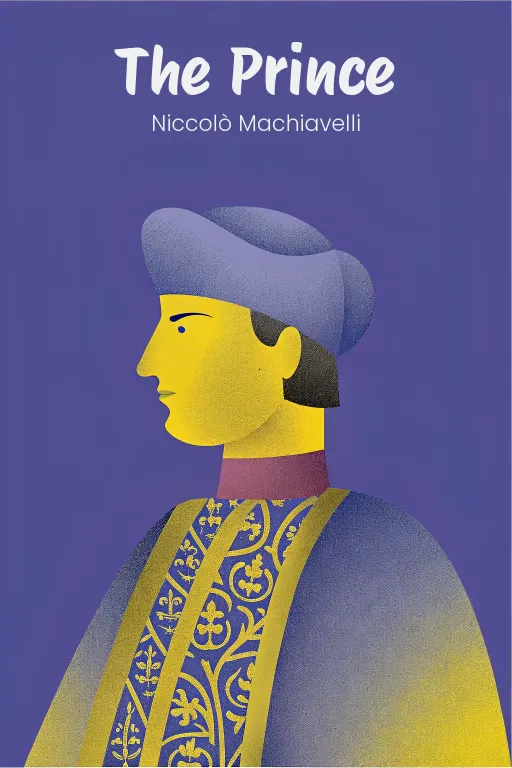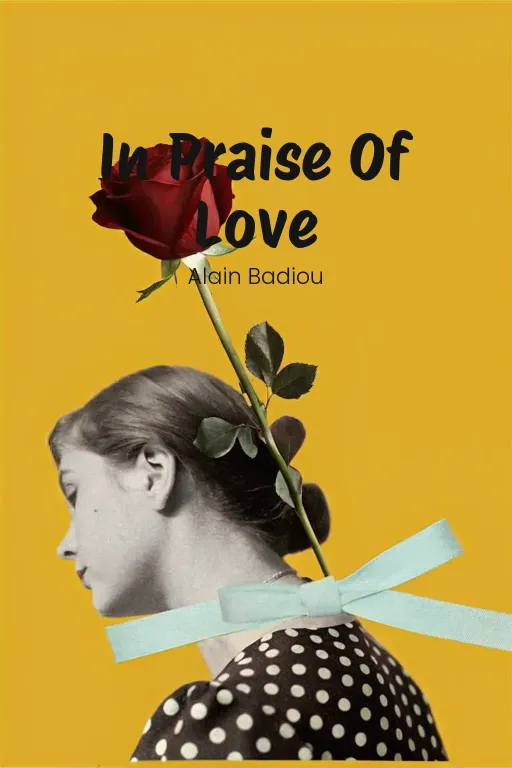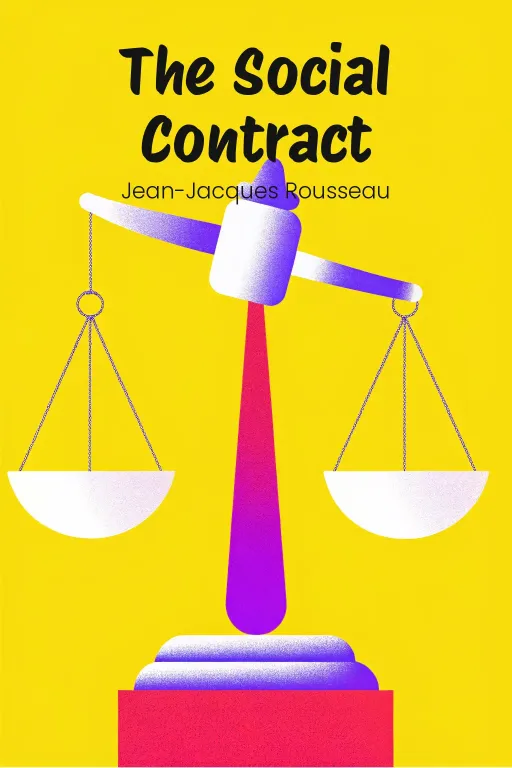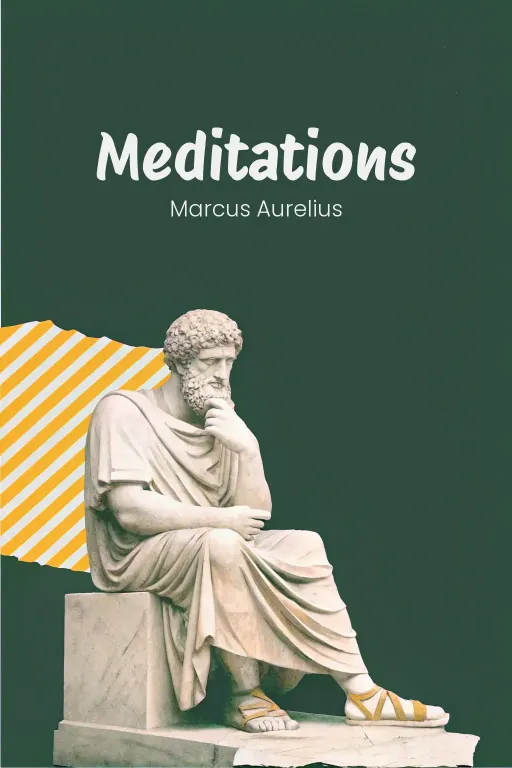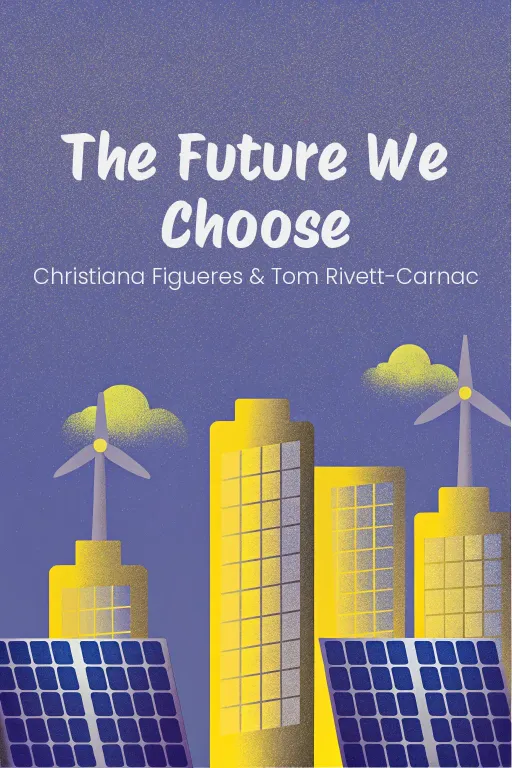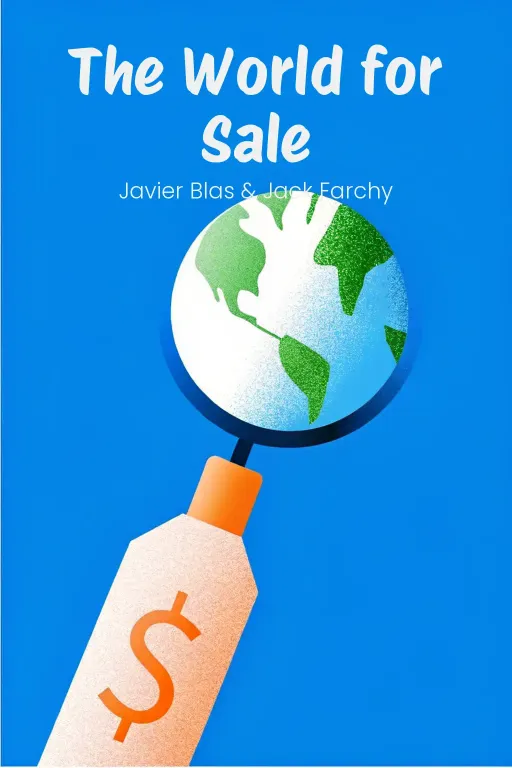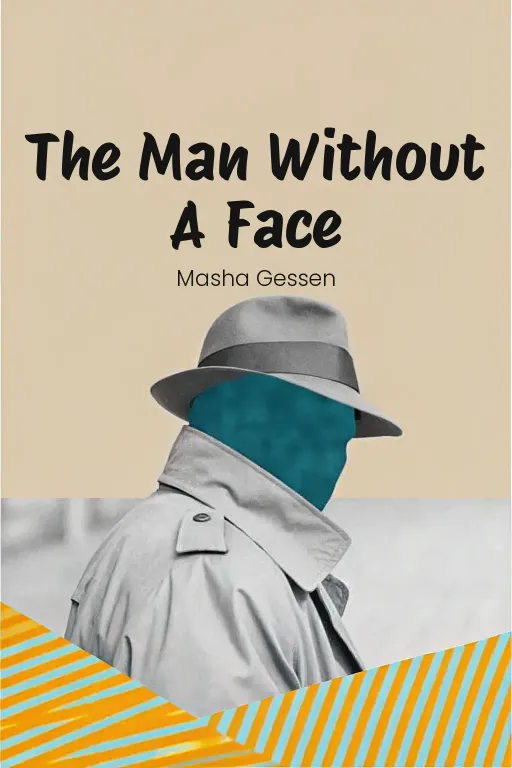
Your Society, Your Rules
Podcast by Civics Decoded with Thomas and Grace
A cornerstone in modern political and social thought
Introduction
Part 1
Grace: Alright everyone, welcome back! So, something I've been pondering lately: why do we even bother with rules? Is it a collective “yeah, let's do this," or are we just sheep following the shepherd? Thomas: Exactly the right question, Grace! Today, we're diving headfirst into The Social Contract by Jean-Jacques Rousseau. This book “really” shakes things up because Rousseau argues that legitimate political power doesn't come from some king, some army, or even from God, but from us—ordinary people—agreeing to create a society that actually works for everyone. Grace: Okay, interesting. But then Rousseau throws another curveball, saying freedom isn't just about doing whatever you want. It's about working together for this “general will” thing. Sounds good on paper, but...is this guy drawing up a blueprint for democracy or an instruction manual for a “really” annoying utopia? Thomas: Hang on to that thought, because here’s what we're going to break down today. First, we’ll look at the social contract idea itself – what it “really” means to join this collective and, you know, trade some individual freedom for more overall order. Then, we’ll get into his critiques of governments that claim to represent us, but “really” are just looking out for number one. And finally, we’ll see how his ideas still influence modern democracy – things like protests, voting rights, and “really” questioning who holds the power. Grace: So, basically, Rousseau’s trying to crack the code: how do we build a society where people are both free and united? I’m curious to see if he nails it, or if we're just left with more questions than answers. Thomas: Either way, his political philosophy is still super relevant. So, let's get into Rousseau's revolutionary plan!
The Social Contract and General Will
Part 2
Thomas: Okay, Grace, you teed this up nicely. So, let's dive into Rousseau's big idea: the shift from the natural state to civil society. He paints this picture of humans in the wild, totally independent, but, you know, pretty much living on the edge. Instinct-driven existence, no rules, no structures. Sounds… idyllic in a way, right? Grace: Sure, if you're cool with constant anxiety and zero safety nets. Rousseau actually doesn't romanticize the natural state, does he? Even though it's a stark contrast to the inequalities of civilization. He points out that natural freedom, while appealing, is also incredibly unstable. It's basically freedom to be exploited, to be alone, and honestly, just to scrape by. He's looking for something better. Thomas: Exactly. That's where the "social pact" comes in. It’s the idea that everyone gets together, agrees to give up some individual freedoms, and in return, gains stability and security through shared laws and rules. But how do we ensure, Grace, that this collective agreement doesn't simply morph into another oppressive monarchy or system? Grace: Excellent point. So, that’s where Rousseau brings in his concept of the “general will.” He argues that, in essence, true legitimacy in any government stems from this collective agreement. A shared moral compass where laws align with the well-being of everyone, not just the privileged few. It's not about enforcing someone's whims; it's about actually crafting laws that embody the common good. Laws that are, in a sense, higher than just individual self-interest. Thomas: Precisely. And this "general will," according to Rousseau, is the glue that holds society together? Grace: Think of it this way: in the state of nature, freedom is like everyone rowing their own boats, going wherever they please...total chaos, right? But with the general will in effect, everyone gets into the same boat, rowing collectively toward a shared destination. Individual actions contribute to collective progress. It has a really nice ring to it. Thomas: Yeah, I see it. Alright, but here's a hitch. Rousseau makes this very clear distinction between the "will of all”—basically just the sum of individual desires—and the "general will," which is the deeper sense of what serves society best. So, if I, for example, really want to row towards my private beach, what happens when the general will says, "Grace, turn the boat around"? Grace: This is where Rousseau throws in his famous—and controversial—line: people must sometimes be "forced to be free." What he's driving at is that true freedom comes from living under laws that you've helped shape. Laws that guarantee justice and equality for everyone. Following the general will, at the end of the day, isn't oppression. It's really about liberating yourself from selfish interests and the potential for chaos. Thomas: Hmmm. Or, depending on how you see it, it could be a very philosophical justification for peer pressure. I'm not saying it's wrong, but Rousseau's faith in people to wisely figure out this general will—a collective altruism, if you will—feels a bit rosy. History has demonstrated time and again that people are really good at putting their own interests first? Grace: Absolutely, and Rousseau acknowledges that risk. But he also argues that this is where active citizen participation becomes crucial. A society guided by the general will doesn't rely on disconnected representatives. It requires informed and engaged citizens willing to debate and be active. Thomas: Speaking of debates, let's apply this to Rousseau's criticism of oligarchies and monarchies. He couldn't have been any clearer: concentrating power in the hands of a king or a ruling elite is illegitimate. The "general will" can't really exist because laws are imposed by a small group deciding what's best for everyone else, right? Grace: Exactly. Rousseau argues that sovereignty—the ultimate authority to make decisions—belongs to the people as a whole. Take monarchies. One of his main criticisms was that they didn't reflect the will of the people. Instead, laws were simply tools for the powerful to protect their own privilege. Rousseau flips that idea completely. Sovereignty doesn't trickle down from a king; it rises up from the citizens themselves. Thomas: I follow, but trusting the general will to handle everything feels like betting your life savings on a group project. What happens if someone hijacks the discussion, or people simply can't agree? Grace: A totally valid concern. That's why Rousseau emphasizes that the moment private interests start influencing public decisions, democracy loses its legitimacy. He offers a safeguard, of sorts. Laws reflecting the general will are those that ensure equity and unity, not protect privilege. This is why he brings up things like inequality. Imagine a society debating whether the wealthy should pay higher taxes. While the individual wills of the wealthy might resist, the general will would favor fairness, which in turn, ensures stability for all. Thomas: Exactly! Because even the most luxurious yacht can't stay afloat if the society around it starts to sink. I get Rousseau's logic here, but putting this into practice sounds like a logistical nightmare. He references examples like ancient Greece, where citizens actively participated in decisions. But can we truly build something like that in a country as large and diverse as ours? Grace: That's the million-dollar question. While smaller city-states like Athens might have embodied this participatory ideal through assemblies, scaling up direct democracy becomes much more challenging in larger societies. However, Rousseau's core idea endures: even in modern systems, the general will lives on when people participate. This means voting, organizing, ensuring public processes are transparent—it's about keeping power accountable and aligned with collective interests. Thomas: So, wait a minute. It sounds like Rousseau isn't just asking about how we organize power. He's also asking a deep moral question. What do we owe each other as members, really? Grace: That's it! For Rousseau, the social contract is ultimately about moral freedom. By committing to laws born of the general will, we rise above self-interest and embody justice. It's this transformation—from isolated individuals to a unified community—that he sees as true liberty. Thomas: Alright, I'll admit, there's a certain beauty to the idea. But like every group project, someone's bound to grumble about doing more work than everyone else. Still, living by principles centered on equality and fairness is a hard concept to really argue against. Grace: And that's why Rousseau continues to resonate. Whether we're debating inequality, advocating for rights, or questioning who our governments truly serve, his work reminds us that a just society doesn't just appear. It's something we have to build, together. Thomas: Or row together, in Rousseau's boat analogy. Let's just hope nobody forgets their oars!
Critique of Representation and Forms of Government
Part 3
Thomas: Building on collective governance, Rousseau's critique of existing political structures “really” hits home, doesn't it? He's not just laying out a philosophical idea of freedom; he's seriously examining how governments have consistently failed us. So, Grace, what about his problem with representation? Why is he so skeptical of this whole "elect someone to represent you" thing? Grace: Good question! Thomas: For Rousseau, representation is fundamentally flawed because it separates sovereignty from the people. He believed power shouldn't be handed off to a politician, no matter how great they sound when campaigning. Sovereignty belongs to all of us, collectively. Once we give that away—to a congress, a parliament, or a monarch—we lose our true freedom. He has this powerful line in The Social Contract: "The people, having once alienated their will, are no longer free.” Grace: So, Rousseau would look at modern elections and just say, "No thanks!" But isn't that a bit extreme? I mean, unless you're running a small town, some form of representation seems... necessary. How else can we actually organize society without every decision turning into a never-ending debate? Thomas: That's fair, and Rousseau does recognize the practicality of representation when you're dealing with bigger societies. But his concern goes deeper—it’s not just about logistics. He worries that representatives stop serving the general will, and start serving... well, themselves, or specific interest groups. That disconnect warps the whole purpose of governance. Look at ancient Rome. The tribunes, elected to protect the common people, shifted their focus to the elite, and the Republic eventually became an authoritarian mess. So, Rousseau’s point? Representation is a slippery slope if citizens aren’t engaged. Grace: Okay, that Rome example stings a bit. How often do politicians today seem more connected to corporate lobbyists or big donors than to the people they’re supposed to represent? Is that Rousseau whispering in our ears, saying representative democracy is always going to have this tension? Thomas: Absolutely. And Rousseau would argue this isn't just an unfortunate accident; it's built into the system when sovereignty is outsourced. He believed laws made without direct citizen input lack legitimacy. And when citizens become passive—when we don’t vote or hold leaders accountable—the system starts to fail. Grace: Right, like a ship with no one at the helm, and someone else grabs the wheel and steers it... badly. So, does Rousseau offer an alternative? Or is he just shaking his head from his 18th-century study? Thomas: He does offer alternatives! Rousseau suggests direct democracy as the purest form. He looks at ancient Athens, where citizens met to debate and vote directly on laws. Sure, that wouldn't work for huge countries, but his message is clear: governance thrives when people participate. It's not about leaders driving the ship; it's about everyone rowing together. Grace: Okay, but Rousseau knew democracy wasn't perfect, right? I mean, he’s the one who talked about "the tyranny of the majority" and how even direct participation can backfire. What happens when the general will becomes just mob rule? Thomas: Great point. Rousseau is honest about democracy's downsides. He said democracy works best in small, close-knit societies where people share values. He feared larger, more diverse nations would struggle to maintain the unity needed for the general will to emerge. Add majority rule to that, and you risk pushing minority voices aside and creating the kind of inequality he hated. That's why he insisted laws made in line with the general will must focus on unity and fairness, not just giving power to the biggest group. Grace: Got it. So, in today’s context, he'd probably look at all the talk about democracy with a skeptical eye, asking, "Are you listening to everyone—or just whoever shouts loudest on social media?" Okay, so that's direct democracy. What about the other big systems—aristocracy and monarchy? Thomas: Here’s where Rousseau gets even more critical. Let's start with aristocracy. In his view, it's governance by a chosen, supposedly superior group—based on wisdom, experience, or, too often, wealth. He admits aristocracy can be efficient because decisions are made by a smaller group. But that efficiency comes at a cost: it's a system that easily becomes an oligarchy, where power and privilege become deeply rooted among a tiny elite. Grace: So, he probably wouldn’t be too impressed with Silicon Valley billionaires trying to "fix society" while building yachts. Thomas: Exactly—the disconnect between decision-makers and ordinary citizens is what Rousseau warned against. He uses examples like Sparta, where the aristocracy ensured efficient governance in some areas but left most of the population—the helots—exploited and oppressed. That inequality undermined any claim Sparta had to serving the collective good. Grace: So, aristocracy has inequality built right into it. It's basically saying, "Trust this small group of exceptional people with your future—but we can’t guarantee they won’t just shut the door behind them." And monarchy? Let me guess: Rousseau wasn't a fan of the "one-ring-to-rule-them-all" model either? Thomas: Not at all. Rousseau said monarchies might offer advantages in large, spread-out states—quick decisions, clear authority. But like aristocracy, monarchies are prone to corruption. Putting all the power into one ruler doesn’t just threaten equality; it basically invites tyranny over time. He points to figures like Louis XIV—a king praised for centralizing power in France, yet his policies crushed the lower classes. Monarchy, Rousseau argues, is a dangerous gamble that the ruler will be righteous, which, as history shows, isn’t a very safe bet. Grace: So, monarchy is like putting all your eggs in one basket and handing that basket to someone who might not make the best decisions. Thomas: Exactly! And Rousseau doesn’t hold back when he talks about how these systems—monarchy, aristocracy, even democracy—can all fall apart if the general will is ignored. Whether it’s mob rule, oligarchic corruption, or tyrannical kings, it all comes back to citizen engagement as the protection for everything. Grace: So, whether it's democracy, aristocracy, or monarchy, Rousseau seems to be making one clear point: if you lose engagement, you lose legitimacy. Thomas: Exactly—and that’s his main concern. Governance is only as strong as the participation of those it serves. Without an alert, active population, power concentrates, inequality grows, and the idea of the general will disappears. Grace: So, Rousseau’s big message is pretty clear: don’t be lazy. If you step out of the political process, someone else will step in—and they probably won’t act in your best interest.
Legacy and Modern Relevance
Part 4
Thomas: So, Grace, after digging into Rousseau’s ideas on governance, it feels like we can't ignore his lasting impact on modern political thinking. We've unpacked legitimacy and the general will, but the big question now is: how do these ideas actually play out in the real world, you know, in history and politics? Grace: Right, so essentially, how relevant are they? Thomas: Exactly! Rousseau wasn’t just theorizing in a bubble. His ideas fueled real revolutions, most notably the French Revolution. His core belief that power comes from the people, not from monarchs or inherited titles, “really” became the anthem for a period of huge upheaval and change in the West. Grace: So, Rousseau basically wrote the philosophical playbook for a revolution? Let me guess – when he said "the people," the French revolutionaries heard "time to sharpen the guillotines"? Thomas: Well, kind of! When the revolutionaries chanted Liberté, Égalité, Fraternité, they were “really” echoing Rousseau's idea of freedom for everyone. They saw the monarchy as this oppressive force that was going against the general will, and they wanted a society where equality wasn't just lip service, you know? Grace: Okay, but the French Revolution wasn't exactly a peaceful debate club. Robespierre and the Jacobins claimed to be channeling Rousseau’s ideas – like direct democracy and everyone getting a vote – but they enforced it through terror. The guillotine wasn’t exactly what Rousseau had in mind for citizen engagement, was it? Thomas: Definitely not. And this is where Rousseau’s legacy gets “complicated”, right? His concept of the general will was supposed to unite society. But, like you said, Grace, leaders like Robespierre twisted his ideas to justify, let's say, "extreme" actions. Basically, they were saying, “This violence is for the greater good.” That’s where it gets dangerous because that ambiguity can justify almost anything. Grace: “Forced to be free” becomes "forced to be decapitated." Do you think he ever imagined his work leading to that kind of chaos? Thomas: I don’t think he envisioned that specific outcome, no. Rousseau was a moralist at heart. He believed in laws that came from mutual agreement and served justice. The Revolution's radicals hijacked and warped his theories. But the bigger takeaway, the idea that political power should come from the people, is still profoundly revolutionary. Even though the French Revolution descended into violence, it set the stage for modern democracy. Grace: So, Rousseau’s ideas survived the madness and became part of... democracy’s very DNA? Thomas: Exactly. His influence extends beyond just revolutions. We see his ideas blossoming in concepts like universal voting, human rights, and the idea that governments are accountable to their citizens. But, he also warned about the dangers of misrepresentation that could twist into something that benefits private interests over the good of the public. Grace: Which leads perfectly into how Rousseau’s warnings about representation ring true today. Voter turnout is often shockingly low. People feel disconnected. They feel like their elected officials are more interested in maintaining their own power than representing the people. Thomas: Exactly, that erosion of trust and engagement? Rousseau saw it coming. He argued that if citizens become passive, then the system grinds to a halt. True democracy demands participation – not just voting, but being informed, debating, and holding politicians accountable. Grace: Okay, but modern democracies are huge. We’re not dealing with small city-states. Is Rousseau’s idea of active, direct citizen participation even possible today? Thomas: It's more challenging, for sure, but not impossible. What’s key is fostering what Rousseau called civic virtue – a deep sense of commitment to the greater good. That means equipping citizens with the skills to think critically, understand their responsibilities, and engage constructively with society. Actually, many countries now prioritize civics education to boost democratic participation. Finland is a shining example. Grace: Huh, a classroom approach to Rousseau. I'm in. But in all seriousness, Rousseau’s focus on education as a foundation for democracy feels especially relevant in this age of misinformation. Social media is like a minefield for civic engagement. Thomas: Absolutely. Rousseau would argue that an informed public is the best defense against manipulation. In today’s hyper-connected world, education isn’t just about facts. It’s about teaching people to question, analyze, and resist being swayed by propaganda. Rousseau saw education as the key to a society that could sustain the general will and he felt modern democracies ignore this at their peril. Grace: Alright, so what about balancing freedom and responsibility? Take climate change, for example. We’re constantly told to make sacrifices. Reduce, recycle, limit our carbon footprint. I feel like Rousseau would weigh in here with a "I told you so." Thomas: Exactly. Climate change perfectly illustrates Rousseau’s ideas of interdependence and shared responsibility. Personal freedoms – like driving gas-guzzling cars – might feel good, but if unchecked, they threaten everyone. Rousseau would urge us to refocus on the common good, to see freedom not as doing whatever we want, but as creating a sustainable future together. Grace: So, the Paris Agreement and other global climate pacts are, like, “social contracts” on a global scale, right? Everyone contributes to a shared goal. Thomas: Exactly. And like Rousseau envisioned, these agreements require both a moral and a practical commitment. They remind us that collective responsibility is what allows societies – and in this case, humanity – to thrive. Grace: Alright, Thomas, final thoughts. Rousseau’s been dead for over 200 years, but his voice still rings loud and clear: freedom is fragile, governance is tricky, and society doesn’t run on autopilot. Is that a fair summary? Thomas: Pretty much, Grace. Rousseau challenges us to stay engaged, to think critically about fairness and justice, and to remember that democracy isn’t just handed to us – it’s something we have to actively create. His legacy is a reminder that the world we want only happens when we work together to build it.
Conclusion
Part 5
Thomas: So, to sum it all up, Rousseau really gave us a radical new way of thinking about society. He believed that real political power comes from everyone agreeing on things together. Basically, the social contract changes those fragile individual freedoms into a solid, shared freedom that's guided by what he called the "general will". Grace: Exactly, but he also didn't shy away from pointing out how easily power can become twisted. Whether it's through kings, nobles, or even democracies where we elect representatives, Rousseau cautioned us that if people stop paying attention and getting involved, inequality and oppression will sneak in. Thomas: But his belief in being actively involved and having good civic values gives us hope. Rousseau wasn't just coming up with ideas; he was urging us to take action. If we want to build a fair society, we need to be present, informed, and united in working toward what's best for everyone. Grace: So, here's the key takeaway: democracy isn't just a system we live under—it's a process we actively participate in. Freedom isn't just about doing whatever we feel like; it's about the challenge of collaborating, working together towards a common goal. Thomas: And perhaps the most important question Rousseau poses to us is this: what are you doing to uphold this social contract? Because a society's resilience isn't solely based on its systems, but rather on the engagement of its people. Grace: Well said, Thomas. Alright folks, that's all for today. Now go forth and, as Rousseau would want, continue to question authority, stay informed, and, most importantly, keep on rowing.

